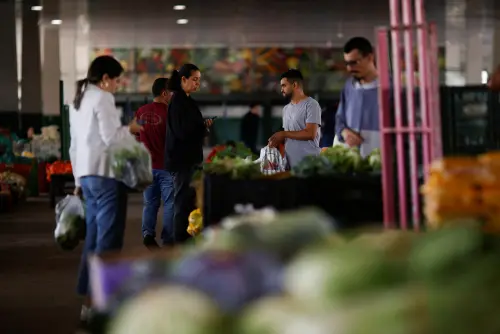Introduction
Brazil's inflation is projected to have decreased in May, primarily due to a temporary slowdown in food and beverage prices.Context
The easing of food inflation is attributed to an abundant supply of foodstuffs resulting from a successful crop and increased cattle farming. This influx has created a surplus in the domestic market, contributing to lower prices.Developments
Official statistics expected to be released on Tuesday are anticipated to reveal a monthly inflation rate of 0.33% and an annual rate of 5.40% for the twelve months leading to May, according to the median estimates of 19 economists surveyed between June 4 and 9. This represents a decline from April's 0.43% monthly rate and 5.53% annual reading, which was the highest since February 2023.UBS analysts noted that May's inflation trajectory was influenced by an increase in energy prices, while food inflation is projected to be close to zero, reaching its low season from May to August. Economists at the bank indicated that prices for fresh food may already be falling, potentially contributing 4 basis points to the overall decrease.
Recent bi-weekly figures indicated price reductions in various categories, including grains, fruits, and vegetables, alongside modest increases in flour and milk. Additionally, chicken prices have declined by approximately 7% since the onset of the bird flu situation, as Brazilian exporters redirected poultry supplies to domestic consumers in response to international bans.
Despite these trends, the twelve-month inflation rate is expected to exceed the government's target of 3% plus or minus 1.5 percentage points for the 8th consecutive month. Beyond the fluctuations in food and energy prices, the services sector has played a significant role in maintaining Brazil's persistent inflation, driven by a robust job market that has elevated sector costs.
However, core services inflation likely moderated to 0.35% monthly in May, down from 0.61% in April, as stated in a report by Barclays. This moderation supports prevailing opinions that the economy is gradually slowing, a trend that is expected to become more pronounced in the second half of the year.
The preliminary deceleration is a result of a monetary tightening campaign that raised Brazil's benchmark interest rate to 14.75% last month, the highest level in nearly two decades. The central bank is currently assessing its approach for the upcoming June rate-setting meeting while refraining from committing to a specific policy direction, according to Governor Gabriel Galipolo.
